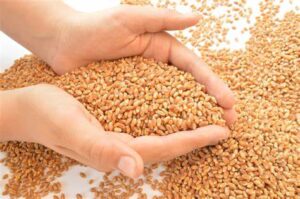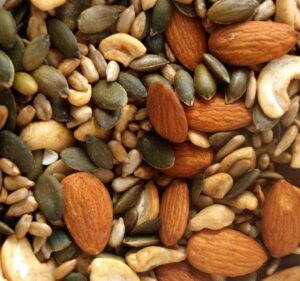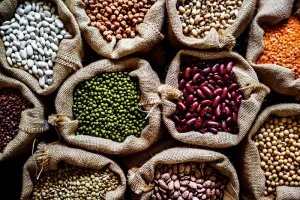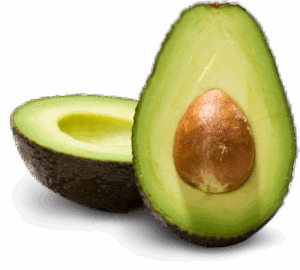Managing diabetes can be challenging, but the right diet plays a crucial role in keeping blood sugar levels stable. Certain foods have been proven to help control diabetes by improving insulin sensitivity, reducing blood sugar spikes, and providing essential nutrients. Here are nine powerful foods that can help keep diabetes in check.
1. Leafy Green Vegetables

Leafy greens like spinach, kale, and collard greens are packed with vitamins, minerals, and fiber while being very low in digestible carbs. They are rich in antioxidants, such as vitamin C and beta-carotene, which help reduce inflammation. Studies show that increasing leafy green vegetable intake can lower the risk of type 2 diabetes. These vegetables also contain magnesium, which helps regulate blood sugar levels.
2. Fatty Fish

Fatty fish such as salmon, sardines, and mackerel are excellent sources of omega-3 fatty acids, which are known to reduce inflammation and improve heart health. People with diabetes have a higher risk of heart disease, making fatty fish an important part of their diet. Additionally, fish is a great source of high-quality protein, which helps stabilize blood sugar levels by slowing digestion and preventing spikes after meals.
3. Whole Grains

Unlike refined grains, whole grains like oats, quinoa, and brown rice contain fiber and nutrients that help regulate blood sugar. The fiber in whole grains slows down digestion, preventing sudden blood sugar spikes. Studies show that whole grains can improve insulin sensitivity and reduce the risk of developing type 2 diabetes. Oats, in particular, contain beta-glucan, a type of soluble fiber that has been shown to lower blood sugar levels.
4. Nuts and Seeds

Nuts and seeds, including almonds, walnuts, chia seeds, and flaxseeds, are rich in healthy fats, protein, and fiber. These nutrients help slow the absorption of sugar into the bloodstream, keeping blood sugar levels stable. Research suggests that regular nut consumption can improve blood sugar control and reduce the risk of heart disease in people with diabetes. Additionally, nuts provide magnesium, which plays a key role in glucose metabolism.
5. Berries

Berries such as strawberries, blueberries, and raspberries are loaded with antioxidants, vitamins, and fiber. Despite their natural sweetness, berries have a low glycemic index, meaning they don’t cause significant blood sugar spikes. The antioxidants in berries help reduce oxidative stress, which is linked to diabetes complications. Adding berries to your diet can satisfy sweet cravings without negatively affecting blood sugar levels.
6. Greek Yogurt

Greek yogurt is a high-protein dairy product that can be beneficial for people with diabetes. The probiotics in yogurt may improve gut health, which has been linked to better blood sugar control. Additionally, the high protein content helps slow digestion, preventing rapid rises in blood sugar. Choosing unsweetened Greek yogurt is important to avoid added sugars that can worsen diabetes.
7. Beans and Legumes

Beans, lentils, and chickpeas are excellent sources of plant-based protein and fiber. The combination of protein and fiber helps slow down carbohydrate digestion, leading to more stable blood sugar levels. Studies have shown that including beans in meals can improve glycemic control and reduce the risk of heart disease in people with diabetes. They are also rich in magnesium and potassium, which support overall metabolic health.
8. Cinnamon

Cinnamon is a flavorful spice with powerful health benefits for diabetes management. Research suggests that cinnamon can improve insulin sensitivity and lower blood sugar levels by slowing the breakdown of carbohydrates in the digestive tract. Adding cinnamon to foods like oatmeal, yogurt, or smoothies can enhance flavor while providing diabetes-friendly benefits. However, moderation is key, as excessive cinnamon intake may have side effects.
9. Avocados

Avocados are rich in healthy monounsaturated fats, which help improve insulin sensitivity and reduce bad cholesterol levels. The high fiber content in avocados also aids in blood sugar control by slowing digestion. Studies have shown that including avocados in meals can help maintain steady blood sugar levels and reduce the risk of metabolic syndrome, a condition linked to diabetes.
Conclusion
Incorporating these nine foods into your diet can help manage diabetes effectively by stabilizing blood sugar levels, improving insulin sensitivity, and reducing the risk of complications. A balanced diet, combined with regular exercise and proper medical care, is essential for diabetes management. Always consult with a healthcare provider or nutritionist before making significant changes to your diet, especially if you have diabetes or other health conditions.
By choosing nutrient-dense, low-glycemic foods, you can take control of your health and keep diabetes in check naturally. Small, consistent dietary changes can make a big difference in managing diabetes and improving overall well-being.
